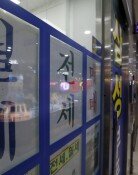U.S. Asks Korea to Open Its Markets
On the first day of the second round of Korea-U.S. FTA negotiations, the U.S. strongly requested that Korea open its rice, automobile, medical supplies, and education markets.
To broaden the market, the U.S. put forth the strategy that sensitive items, or items not for negotiation on the FTA, should be minimized. Koreas trade concession proposal and reservation proposal goals seem hard to reach.
U.S. trade negotiator Wendy Cutler met with reporters and emphasized, It is important to prepare the frame and form of the concession proposals during this negotiation.
A concession proposal regulates the range of tariff reductions and time, and a reservation proposal is the list of items being excepted from negotiation.
The frame of the concession proposal that Cutler mentioned is a method applied by the World Trade Organization (WTO) for negotiations, and is interpreted as demanding that only 10 percent of the total items be left as sensitive items, and the remaining 90 percent be opened to the market.
Korea, which has more sensitive items than the U.S, and was therefore planning to exchange concession proposals according to each article, and negotiate them one by one, is at a disadvantage.
Cutler also requested Korea open up its weak industry such as rice. Regarding the automobile market, she pointed out, 800,000 Korean cars are sold in America a year, compared to only 4,000 U.S. cars in Korea.
At the Seoul Shilla Hotel, the place of the negotiation, the Korea-U.S. FTA obstruction movement and other organizations assembled to hold congregations and issue statements for the end of negotiations.
The Korea Employers Federation issued a statement and criticized, If the labor world opposes the FTA negotiations, going on illegal strike is an irresponsible act that will eliminate our jobs.
Meanwhile, to smoothen the flow of the FTA negotiations, President Roh Moo-hyun ordered that teams for collecting domestic opinion, public relations and inspecting problems be formed. Jung Tae-ho, Cheong Wa Dae spokesperson, conveyed that President Roh gave these instructions during a meeting, and also instructed, The domestic teams must inspect anti-FTA views so that the negotiations can be carried on without any fiasco.







